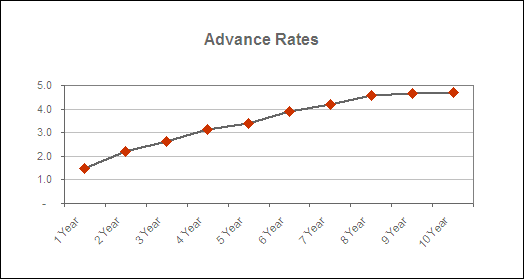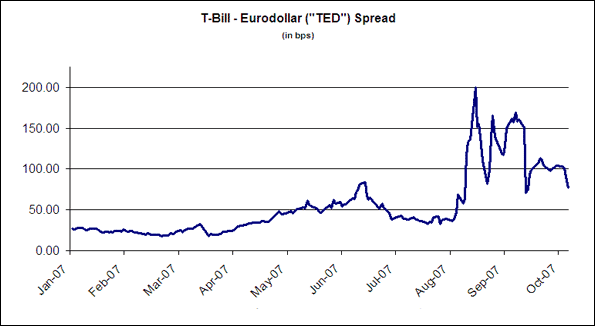Federal Home Loan Bank of Seattle What Counts Newsletter
Post on: 27 Июнь, 2015 No Comment

Changes in Fair Value
Brian S. Wesbury, Chief Economist
First Trust Advisors, LP
Until a few weeks ago, our elected leaders and a significant, although shrinking, number of financial market professionals were fighting strenuously against any alteration of mark-to-market accounting rules. There was a real stubbornness about this topic.
The untouchable nature of these accounting rules may have been most clearly stated by Congressman Barney Frank on CNBC the morning of February 11. “You certainly don’t want Congress legislating accounting [rules],” he argued. Amazingly, no one asked: Why? Congress passes laws all the time: gas mileage in our cars, how much water our toilets can use, where we can drill for oil, Sarbanes-Oxley, etc. etc. etc.
If Congress can do all that, it would seem a mystery as to why they can’t comment, or act to fix accounting rules. Don’t get me wrong, I don’t think Congress should legislate nearly as much as it does. But how and when did the accounting profession become so infallible? After all, despite the cold accuracy of numbers, most accounting rules are only an estimate of reality.
If the computer on your desk is more than three years old, accounting rules for depreciation says it is worth nothing whether or not it still works. Depreciation provides only an estimate of true value. If fuel prices fall, and an airline may save billions in fuel costs over the next few months, current accounting rules do not allow it book those lower costs as savings today – but if it has hedged at higher prices, it would be forced to book those losses right away even if the hedge has months to run.
Fair value accounting is also just one way to keep the books. This rule forces financial institutions to “mark” the value of assets to the “market” and then take any gain or loss through the income statement and onto the balance sheet. There is no allowance made in this process for whether markets are liquid or not, whether prices reflect true underlying cash flows, or whether panic is in the air and the prices available are fire-sale prices.
This does not mean that fair value accounting is 100% wrong. It’s not. But it is extremely pro-cyclical. When the market is going up, bank capital is boosted and banks lend more. And when the market is going down, fair value accounting rules cause bank capital to shrink, which causes banks to pull back from taking risk. In other words, the rule helped create our housing bubble in the first place, and in this past year, by hampering lending activities, it has made the economy worse.
Nonetheless, some observers – those who believe fair value accounting should be retained – think that the prices of so-called toxic assets in the market (no matter how low) are reflective of “real” value. They argue that home prices will fall significantly further and that more foreclosures will occur. Therefore, market prices for toxic assets (no matter how low) reflect reality.
The problem is that this is a forecast. Those who believe it think that current market prices are correct and that anyone who wants to price them higher is “marking-to-myth.” In reality, these pessimists are the ones who want to mark-to-myth or model. It’s their model, of course, and their myth: the one that says the world will get much worse. No matter how low the price for any security is, they believe that it is probably justified.
And this is where a bigger, more systemic error is created. Because mark-to-market accounting reduces the capital position of our banking system, it impacts the economy. The accounting rule itself creates a self-fulfilling prophecy because it sets off a vicious and circular economic cycle. Capital contraction harms lending, which in turn hurts the economy, which in turn lowers the prices for assets, which reduces capital further, starting the whole cycle all over again. This cycle must end before the economy recovers. As a result, one of three things must happen.
- Every asset has to be written down to a rock-bottom level, where the odds of further mark-downs are near zero.
- The government must buy all the bad assets, or flood the system with so much money, that it takes away the risk of further markdowns.
- Or, Congress, the SEC, the Treasury, or the Financial Accounting Standards Board (FASB) must alter or suspend mark-to-market accounting.

The first option is the nuclear option. If mark-to-market accounting is not altered, the downward spiral will continue and capital will remain frozen, making things much worse. The second option is taking an awfully long time to come to fruition. It is very expensive, and there is no guarantee that Treasury will ever get it right.
This leaves option three, and it is coming to fruition. Despite the accounting profession’s strenuous objections and against his previous statements, Barney Frank leaned heavily on FASB to make changes.
So, on April 2, FASB announced changes in mark-to-market accounting, which give more room for subjectivity in the accounting for illiquid assets or prices found through distressed sales. Since that hearing, the stock market, including financial stock prices, has risen sharply.
This is not a coincidence. The changes in the accounting rules have made a huge difference. While the full suspension of this rule would be best, the changes FASB has allowed will stop the erosion of bank capital due to accounting rules. This is a key reason for more investor optimism.
Unfortunately, the Federal Reserve and Treasury are not making allowances for these rule changes when following through on their “stress tests” of 19 very large financial institutions. This makes absolutely no sense, unless the government is trying to maintain tight control of the financial system at this juncture.
Some banks that would probably be stable with new accounting rules will be judged in need of new capital by the stress tests.
The good news is that this is the last chapter in this sad saga. While the results of the stress test will end up diluting the shareholders of some major banks, the threat to the economy from mark-to-market accounting is over.
Fair value accounting existed in the 1930s. Milton Friedman argued that it was responsible for many bank failures. But in 1938, President Roosevelt suspended it. Between then and 2007, when mark-to-market accounting made a full return, the economy had no panics or depressions.
The good news is that this time it did not take nine years of economic mayhem to change the rules. And with FASB finally allowing some leeway on the issue, the worst of our financial crisis is now behind us.
April 30, 2009
Printable Version
E-mail this article














